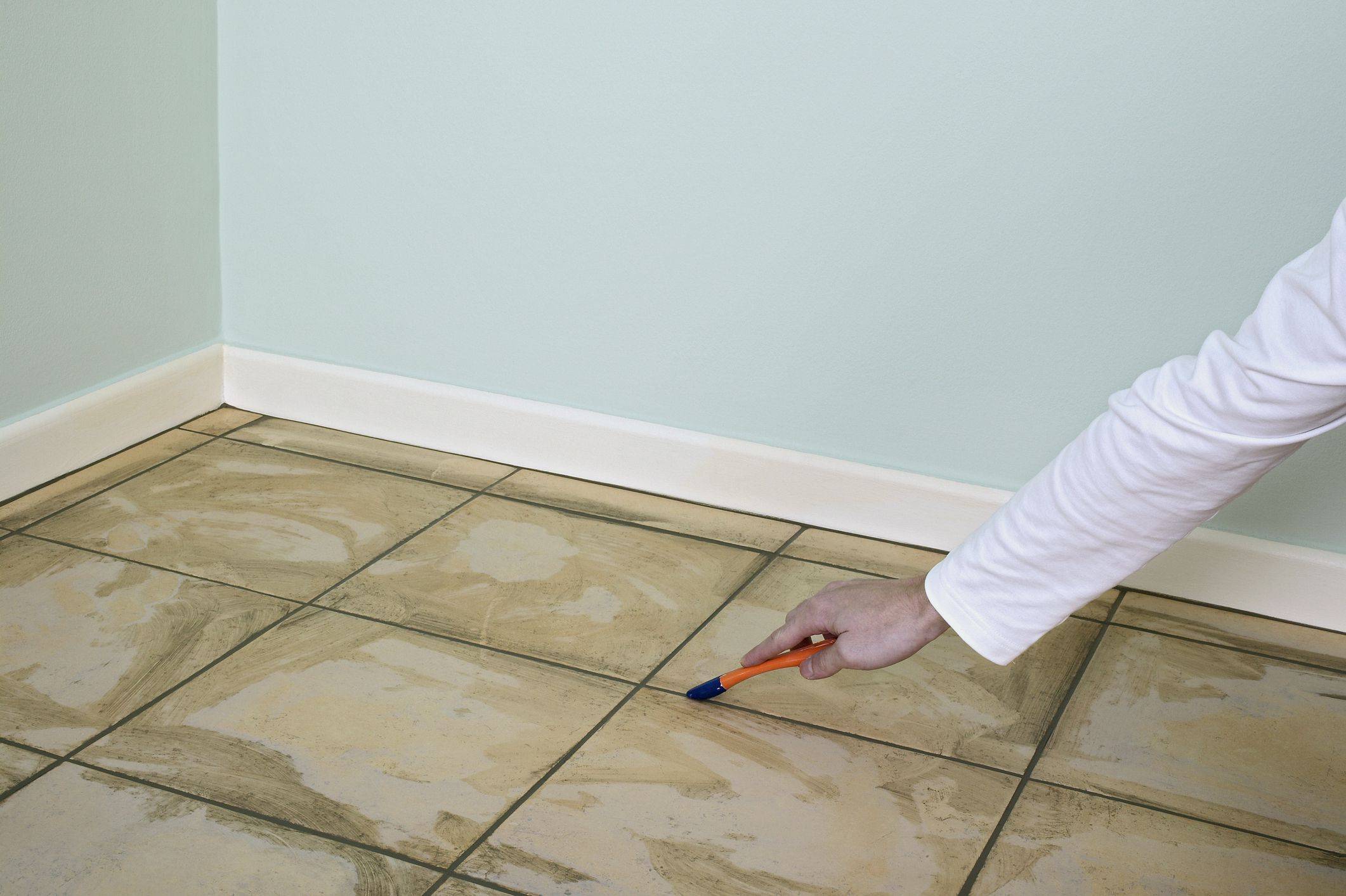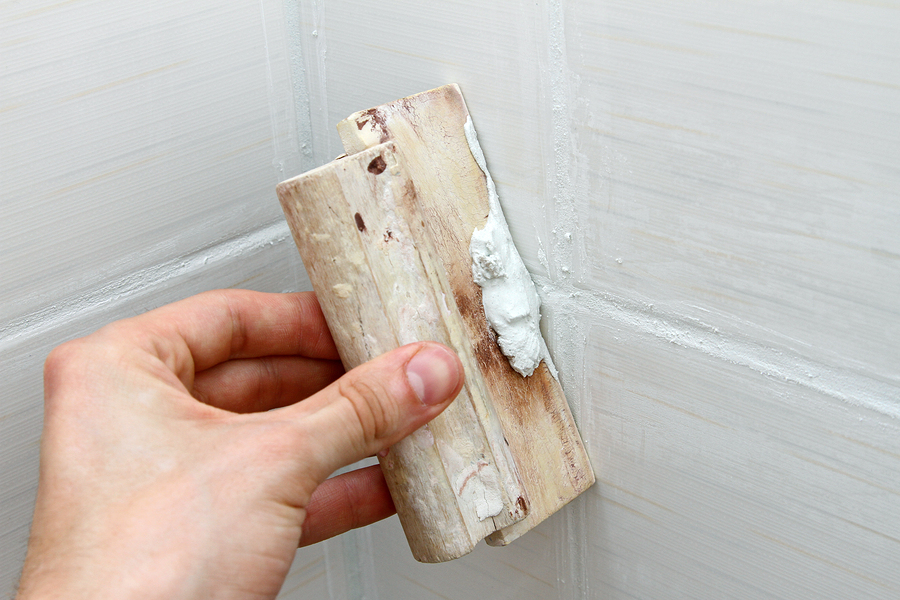Have you just finished installing beautiful new tile floors in your home, only to find yourself wondering if sealing the grout is a necessary step? The answer, like many things in home improvement, is “it depends.” While sealing grout isn’t always mandatory, it can significantly affect the longevity and appearance of your tile floors. Understanding the pros and cons of sealing grout will help you make an informed decision.

Image: ishjord.weebly.com
Grout, the cement-based material that fills the spaces between tiles, is porous by nature. This porosity makes it susceptible to staining, mold growth, and even damage from everyday wear and tear. Sealing the grout creates a protective barrier, preventing these issues and preserving the beauty of your tile floors for years to come.
Why Seal Grout?
Sealing grout offers numerous benefits that can save you time, money, and hassle in the long run. Here are some key reasons why you might want to consider sealing your grout:
Protection from Stains
Grout is particularly vulnerable to stains caused by common household substances like wine, coffee, oil, and even water. Sealing the grout creates a barrier that repels these substances, preventing them from penetrating the surface and causing permanent discoloration. This is especially important in high-traffic areas like kitchens and bathrooms, where spills are a common occurrence.
Resistance to Mold and Mildew
Moist environments, such as bathrooms and kitchens, can create an ideal breeding ground for mold and mildew. Grout’s porous nature allows these microorganisms to thrive within the crevices, causing discoloration and potential health issues. Sealing the grout helps to prevent moisture from penetrating the surface, making it more resistant to mold and mildew growth.

Image: www.dustcommander.com
Simplified Cleaning
Sealed grout is far easier to clean than unsealed grout. Spills and dirt can be wiped away effortlessly, without the need for harsh cleaners or scrubbing. This can save you time and energy, while also protecting the surface of your grout from damage.
Enhanced Durability
Sealing the grout helps to create a more durable surface that can withstand everyday wear and tear. This is especially important in high-traffic areas, where foot traffic and abrasive cleaning products can cause premature deterioration of the grout. Sealing creates a protective barrier that helps to extend the life of your tile floors.
When is Sealing Grout Necessary?
While sealing grout is often recommended, it’s not always necessary for all types of tile floors. Here are some factors that can influence your decision:
Type of Grout
The type of grout used can determine whether sealing is essential. Sanded grout is often more porous than unsanded grout and therefore benefits more from sealing. Epoxy grout, on the other hand, is naturally denser and more resistant to staining, making sealing less necessary.
Location of Tile
The location of the tile plays a significant role. Tiles in high-traffic areas, such as kitchens and bathrooms, are more likely to experience spills and wear and tear, making sealing more important. Conversely, tiles in low-traffic areas, such as bedrooms or hallways, may not require sealing.
Type of Tile
The type of tile used can also affect the need for grout sealing. Porous tiles, such as natural stone, are more likely to absorb stains than non-porous tiles like ceramic. If you have porous tiles, sealing the grout is generally recommended.
How to Seal Grout
Sealing grout is a relatively simple DIY project that can be done in a few hours. Here’s a step-by-step guide to help you get started:
1. Clean the Grout Thoroughly
Before you start sealing, it’s crucial to clean the grout thoroughly. This will ensure that the sealer can penetrate the surface effectively. Use a grout cleaner and a scrub brush to remove any dirt, grime, and mold. Allow the grout to dry completely before moving to the next step.
2. Apply the Sealer
Use a grout sealer that is specifically designed for the type of grout you have. Apply the sealer evenly to the grout lines using a brush, sponge, or even a paint roller. Be sure to follow the manufacturer’s instructions for application time and drying time. You may need to apply multiple coats for maximum protection.
3. Allow the Sealer to Dry
After applying the sealer, allow it to dry completely before using the floor. The drying time will vary depending on the product and the ambient temperature. It’s important to avoid walking on the floor until the sealer is fully dry to prevent damage or smudging.
Maintenance and Re-Sealing
Sealing grout is not a one-time solution. Over time, the protective barrier can wear down, especially in high-traffic areas. Regular maintenance and re-sealing are essential to maintain the effectiveness of the sealant and protect your grout.
Re-Sealing Schedule
The frequency of re-sealing depends on the type of grout, the traffic level, and the wear and tear it experiences. A general rule of thumb is to re-seal the grout every 1 to 3 years. However, it’s always best to check the manufacturer’s recommendations for the specific sealer you are using.
Inspecting for Re-Seal
To check if your grout needs re-sealing, you can perform a simple water test. Place a few drops of water on the grout. If the water beads up and rolls off the surface, the sealant is still intact. However, if the water is absorbed into the grout, it’s time to re-seal.
Do You Have To Seal Grout On Tile Floors
Conclusion
Sealing grout is an important step in maintaining the longevity and beauty of your tile floors. While it may seem like an extra expense, the benefits far outweigh the cost, saving you time, money, and frustration in the long run. By understanding the pros and cons of sealing grout, and following the recommended procedures, you can ensure that your tile floors remain stunning and functional for years to come. Remember to consult with an expert if you have questions and to follow the manufacturer’s instructions for the best results. So, get those grout lines sealed and enjoy a low-maintenance, beautiful floor that you can be proud of for years to come.



/GettyImages-173599369-58ad68f83df78c345b829dfc.jpg?w=740&resize=740,414&ssl=1)


